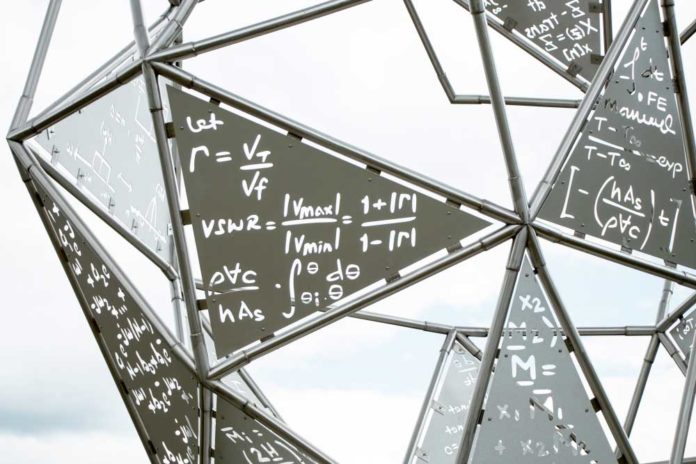
Here’s my darkest secret as a science major: I took algebra one in seventh grade, and did so poorly that I then repeated it in eighth grade. I’ve cried over math. I’ve had panic attacks over math. I’ve disavowed math and cursed math and claimed that I would never use math after high school so-help-me-God.
After all, I was co-President of the literary club; I was Editor-in-Chief of the newspaper, which racked up awards; my teachers voted for me to receive the graduating senior award for English; my peers voted for me to receive the title of Most Creative in the yearbook. Why should I care about math when art was clearly my passion? Back in K12, I thought I’d had it all figured out, Orwell-style: English class good, math class bad.
Growing up, many elementary school teachers still believed and repeated the myth that girls are just better at humanities and boys are just better at math. Couple that with early math pedagogy hyper-focusing on visualization (a more “male” learning style) rather than interpretation (a more “female” learning style). The early-to-mid 2000s just weren’t a particularly nurturing environment for future female geologists.
While boys and girls are not shown to have any intrinsic difference in math ability, girls are shown through studies to have more math anxiety and lower confidence in their ability to perform math. Moreover, it has been shown that doing well in math as a child predicts whether that person will feel confident about math as an adult.
It’s no surprise to me that so many girls have developed a toxic relationship with math in classroom contexts.
Cut back to scenes of me repeating algebra, of me crying over my homework, of me pleading with the math gods to put me out of my misery. It didn’t all start that way; I had liked math as a kid. Until twelfth grade, math just didn’t seem to like me back.
But oh boy, did twelfth grade change everything.
In twelfth grade, calculus was my first math class where teachers didn’t focus solely on what I had done wrong. Tests weren’t treated as punitive measures of how many points could be lost on a given question. My teacher, Mr. Vaage, treated math as a tool to solve a problem; assessments were ways of seeing how well students understood how to use those tools. If a student demonstrated that they knew how to solve a problem, they would get points even if the final answer was incorrect.
Notably, this was my first math class since geometry which explained concepts using drawings and figures. Success didn’t depend on being able to mentally visualize the spatial relationships (the method which works better for male students than it does female students). As a result, I was frequently returned exams with “100” written at the top of the page.
When I started doing well in math, I stopped thinking of myself as someone who “couldn’t do math.” When I stopped thinking of myself that way, I stopped considering my potential college major in binary terms of what-I-was-good-at versus what-I-was-not-good-at.
Instead, I began asking myself which problems I wanted to tackle and what kind of lifestyle I would find fulfilling. I decided that I wanted to investigate problems such as climate change, natural resource scarcity and environmental injustice – all science fields that I previously would have limited myself from pursuing.
For the first time, I was able to explore the idea of a life with math that wasn’t rooted in shame. Sure, I liked reading and writing, but those were just tools, too – confidence with using the tools shouldn’t be the basis for choosing an entire lifelong career. Once my interests became disentangled from my self-esteem, I felt like I could do, well, anything.
If I’d been taught calculus by a different teacher, I don’t think I would be studying science today. I probably wouldn’t have even considered it. I would never have known that I could receive As in both statistics and in calculus in my first semester of my freshman year of college. I would still be convinced that I couldn’t do math.
As institutions in education, industry and policy continue to scratch their heads over the question of how to get more women in STEM, they might want to consider the radical possibility of building up women to believe they can be successful. Undoing generations of gendered misconceptions may seem like a lot of work – but I challenge them to think about Mr. Vaage, the high school teacher who altered my life path in just one year.
I challenge them to think about the other students who don’t yet know what kind of potential they hold. I challenge them to think about the existential problems we can tackle when both men and women work together to find solutions.
But the first step is allowing a child to believe that she is capable.
The second step is allowing her to be capable.
The third-through-last steps are easy, because she does them on her own.
For comments/questions about this story, email news@thewhitonline.com or tweet @TheWhitOnline.




